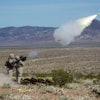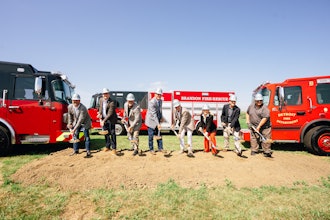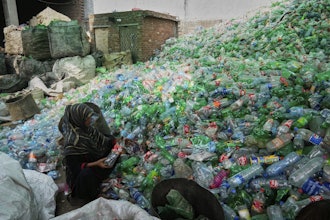Chemical weapons have been one of many tragic aspects of the war in Syria for years. And now, after the ISIS-led Paris attacks, some U.S. officials are reporting that the terrorist group is plotting to manufacture chemical weapons to use in the EU or U.S.
Not everyone is convinced ISIS can pull off an attack in the West. But if they did, how bad would it be and how do you survive?
First, a disclaimer: There are several types of chemical weapons that have been reportedly used in Syria. Sarin, a nerve agent, is one of the most deadly and was used in a 2013 attack on a Damascus suburb that killed an estimated 281 to 1,729 people. There have also been suspected chlorine gas attacks throughout the country and most recently, eye-witness reports have accused Russia of dropping white phosphorus — which can burn through flesh and bone — in civilian areas while attacking ISIS. (Though it should be noted that those reports have not been verified by government officials.)
Reportedly, ISIS is hoping to obtain or manufacture mustard gas: a chemical that has been used since World War 1. Mustard gas, or sulfur mustard, is a blister agent that can cause nasty, pus-filled blisters and burns on the skin, blindness, respiratory problems as well as major stomach pain and problems. Though it’s not often lethal, it can leave permanent physical damage.
Unlike nerve agents that can immediately harm victims, symptoms of mustard gas poisoning often don’t kick in for 12 to 24 hours — so it’s important to know how to decontaminate yourself in the event of exposure.
In general, the rules for surviving a chemical weapons attack, as given by the Organization For The Prohibition of Chemical Weapons (OPCW), are similar despite the type of chemical – and could apply to other types of toxic chemical exposure.
But if you were standing outside and you knew you had been exposed to mustard gas specifically, what would be the best way to survive?
- Take shelter immediately in a nearby car until the chemical agent has been dispersed in the air. Wind can often blow the chemicals away.
- Seek shelter immediately indoors and hustle to a shower. Remove clothing using scissors and put in a plastic bag. Wash your body with soap and water. If hair is suspected to be contaminated, it must be shaved off.
- Put on a gas mask to avoid inhaling the chemical agent. Then seek shelter.
SCROLL DOWN TO SEE THE BEST ANSWER:
B) Seek shelter immediately indoors and hustle to a shower. Remove clothing using scissors and put in a plastic bag. Wash your body with soap and water. If hair is suspected to be contaminated, it must be shaved off.
While it’s true that chemical agents can be dispersed in the air and that you should flee any place where a chemical weapon has been used, cars do not provide air-tight protection.
Gas masks also do not provide adequate protection since chemicals can be absorbed through the skin.
This is why B is the best case scenario in a truly worst case scenario, according to OPCW.






















